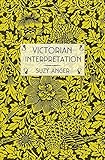Victorian Interpretation / Suzy Anger.
Material type: TextPublisher: Ithaca, NY : Cornell University Press, [2011]Copyright date: ©2011Description: 1 online resource (222 p.)Content type:
TextPublisher: Ithaca, NY : Cornell University Press, [2011]Copyright date: ©2011Description: 1 online resource (222 p.)Content type: - 9780801464799
- 121.686094209034 22/eng/20230216
- online - DeGruyter
| Item type | Current library | Call number | URL | Status | Notes | Barcode | |
|---|---|---|---|---|---|---|---|
 eBook
eBook
|
Biblioteca "Angelicum" Pont. Univ. S.Tommaso d'Aquino Nuvola online | online - DeGruyter (Browse shelf(Opens below)) | Online access | Not for loan (Accesso limitato) | Accesso per gli utenti autorizzati / Access for authorized users | (dgr)9780801464799 |
Browsing Biblioteca "Angelicum" Pont. Univ. S.Tommaso d'Aquino shelves, Shelving location: Nuvola online Close shelf browser (Hides shelf browser)

|

|

|

|

|

|

|
||
| online - DeGruyter Under the Surface : Fracking, Fortunes, and the Fate of the Marcellus Shale / | online - DeGruyter Housing the New Russia / | online - DeGruyter The Working Class Majority : America's Best Kept Secret / | online - DeGruyter Victorian Interpretation / | online - DeGruyter Death and Salvation in Ancient Egypt / | online - DeGruyter Why France? : American Historians Reflect on an Enduring Fascination / | online - DeGruyter The Secret History of Hermes Trismegistus : Hermeticism from Ancient to Modern Times / |
Frontmatter -- Contents -- Acknowledgments -- An Overview -- 1. Victorian Scriptural Hermeneutics: History, Intention, and Evolution -- 2. Carlyle: Between Biblical Exegesis and Romantic Hermeneutics -- 3. George Eliot’s Hermeneutics of Sympathy -- 4. Subjectivism, Intersubjectivity, and Intention: Oscar Wilde and Literary Hermeneutics -- Epilogue -- Notes -- Index
restricted access online access with authorization star
http://purl.org/coar/access_right/c_16ec
Suzy Anger investigates the relationship of Victorian interpretation to the ways in which literary criticism is practiced today. Her primary focus is literary interpretation, but she also considers fields such as legal theory, psychology, history, and the natural sciences in order to establish the pervasiveness of hermeneutic thought in Victorian culture. Anger's book demonstrates that much current thought on interpretation has its antecedents in the Victorians, who were already deeply engaged with the problems of interpretation that concern literary theorists today.Anger traces the development and transformation of interpretive theory from a religious to a secular (and particularly literary) context. She argues that even as hermeneutic theory was secularized in literary interpretation it carried in its practice some of the religious implications with which the tradition began. She further maintains that, for the Victorians, theories of interpretation are often connected to ethical principles and suggests that all theories of interpretation may ultimately be grounded in ethical theories.Beginning with an examination of Victorian biblical exegesis, in the work of figures such as Benjamin Jowett, John Henry Newman, and Matthew Arnold, the book moves to studies of Thomas Carlyle, George Eliot, and Oscar Wilde. Emphasizing the extent to which these important writers are preoccupied with hermeneutics, Anger also shows that consideration of their thought brings to light questions and qualifications of some of the assumptions of contemporary criticism.
Mode of access: Internet via World Wide Web.
In English.
Description based on online resource; title from PDF title page (publisher's Web site, viewed 26. Apr 2024)


